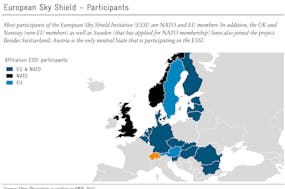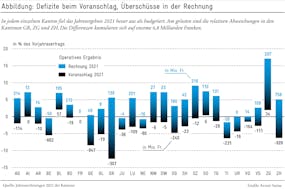The OECD’s new minimum corporate tax rate is on the doorstep. The new 15 percent profit levy will apply to big companies with sales exceeding 750 million euros – forcing 18 Swiss cantons to raise their corporate rates.
Although the high-tax cantons of Zurich and Bern often complain about intra-Swiss tax competition, the move is unlikely to make their finance directors particularly happy. In good Swiss fashion, the federal government’s implementation plan chimes with the long-established Swiss principle of cantonal competition: if some cantons now have to raise their corporate tax rates, the additional revenues will flow directly to their own coffers – providing room for maneuver for income tax cuts.
That will broaden the fiscal incentives influencing inward investment decisions beyond just headline corporate taxation – meaning the OECD’s move will have a direct impact on cantonal policymaking. Big cantons with bloated administrations will have to try harder than ever to stay attractive.
With the new rules meaning companies can no longer be lured by low corporate tax rates, cantonal administrators will have to devise alternative tools to stay competitive. But rather than pricey subsidies, it is greater cantonal efficiency that is needed. Such steps could include easing tax progression for high earners, freezing public sector employment, deregulation, simplifying administrative procedures and accelerating digitalization, as well as privatizing cantonal companies.
But efficiency improvements are also needed at federal level. In addition to ensuring access to foreign markets and quickly clarifying relations with the European Union, the government needs to push through greater labor market flexibility and significantly raise quotas for talented immigrants from third countries.
There is some historical irony here. While federalism has come under considerable pressure during the pandemic, with criticism of centralized decision making, the OECD’s tax move could boost cantonal competition once again.





